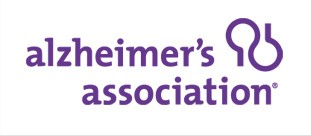The 54 traditional chapters of Alzheimer’s Association deadlocked at 27-27 on a plan to create a single, nonprofit entity out of the national office and its 81 chapters.
The non-binding vote on the Mission Forward proposal came during a chapter delegate assembly on Oct. 3. The Mission Forward work group will meet on Thursday of this week to review its work before the national board is scheduled to vote on the proposal on Saturday.
“The vote and related conversation that took place at the delegate assembly is certainly a very important piece of information as the (Mission Forward) work group looks at it,” Stuart Putnam, national board chairman, said. There were no distinct voting blocs as chapters large and small, as well as urban and rural, varied in their yes or no votes, he said.
The work group will take into account all of the information that’s been considered over the past 18 months, including the Oct. 3 vote and related commentary from delegates. That recommendation, about whether to proceed, would go from the work group to the national board, Putnam said. If the national board goes forward to become a unified organization, implementation would begin after June 30, 2016.
Since the motion on Mission Forward did not pass, three-quarters of the 32-member national board is required to approve the plan, according to Putnam. Had the motion passed, a super-majority of the national board would not be required.
The Chicago-headquartered Alzheimer’s Association has 81 chapters around the country, including 27 national chapters and 54 traditional chapters. National chapters were not represented at the delegate assembly.
Some chapter representatives, who wished not to be identified, have raised questions about delivery of care and support, the continuation of self-governing chapters, and whether assets of the chapters would remain in their control under any new entity. Others have said that national has not provided a convincing or detailed business plan for becoming one organization. A handful of affiliates supported a highly coordinated federation model, conceding that some change in governance is needed.
Putnam said he visited and had discussions with about 40 chapters. “While there are chapters that did not end up being comfortable voting for the proposal, there were many that very directly indicated to me their full and ongoing commitment to the association and our cause and their willingness to be supportive of the national organization, whatever direction it chooses,” he said. That all 54 affiliates took the time and effort to be actively engaged in the organization and vote, Putnam said, showed a demonstrated commitment for the people they serve
Whether traditional chapters break off from Alzheimer’s Association or where the process goes should the national board not approve the plan, Putnam declined to speculate. “Proposing change like this, that risk is out there and one we considered. We would be hopeful that there are no disaffiliations. If there are some, we would be prepared to introduce services in a chapter presence in those territories, so that everyone could benefit from our strategic plan and mission that we provide elsewhere in the country,” Putnam said.
“Regardless of the outcome on Oct. 17, we’ll all look forward to working together to take care of more people who have the disease and their caregivers and to finding a cure.”
